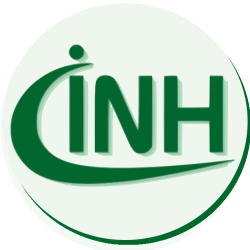
Fortunately, the German medical profession meanwhile moves forward in the case of homeopathy. This is to be seen at the nine federal physician chambers which adopted new training guidelines without homeopathy within the last twelve months (among them also Hamburg). The attitude of the medical profession is undoubtedly central to the goal of making facts rather than myths about homeopathy accessible to the public and to finally get the legislature to rethink the role of homeopathy in the health care system. Just remember the example of France.
We therefore welcome the discussion, especially within the medical profession.
After a critical article by Prof. Andreas Sönnichsen (MedUni Vienna) on the effectiveness of homeopathy being published in the journal of the Kassenärztliche Vereinigung (Association of Statutory Health Insurance Physicians) Hamburg (KVH-Journal), a replica of three homeopathic doctors has been published in the following issue. This replica is hardly suitable for informing readers about the real scientific location of homeopathy (links to the articles in the text below).
We have therefore sent the following statement to the editorial staff of the KVH Journal with the request to pass it on to the authors of the replica. Prof. Sönnichsen as author of the original article has also received the text.

Opinion of the Information Network Homeopathy
to the article in KVH Journal 03/2020
“On the effectiveness of homeopathy – Replica of the article ‘Homeopathy – expensive placebos’ by Prof. Dr. Andreas Sönnichsen (KVH- Journal 2/2020, page 24)”.
(https://www.kvhh.net/media/public/db/media/1/2009/10/71/03_20_kvh_journal.pdf /
https://lv-shh.dzvhae.de/wpshh/wp-content/uploads/2020/03/BERGER-Replik-Zur-Wirksamkeit-der-Hom%C3%B6opathie___-KVH-Journal-1.pdf)
As a medical layman, you are often prompted: “Ask your doctor or pharmacist about risks and side effects! This is certainly justified, because the state does a great deal to ensure a high level of competence in the medical profession through the licensing regulations and other regulations, so that citizens can rely on being informed and treated on the basis of the best possible level of knowledge. It is all the more disconcerting when there are voices from this circle that are either unable or unwilling to grasp and/or describe a scientific state of affairs. This is particularly true when positions are taken which contradict the scientific facts and the content of medical studies.
In March 2020, an article was published in the journal of the Hamburg Association of Statutory Health Insurance Physicians in which three homeopathic doctors comment on an article by Prof. Sönnichsen [1] [2]. In the article, the authors complain that on the side of the critics of homeopathy, there is a lack of “adequate consideration of facts, which is not objectively determined by pre-determinations and which allows the reader to make his own judgement.” This naturally requires “in-depth research or preoccupation with the subject”, which, in the authors’ opinion, the critics have also failed to do.
The key point is that the authors do not live up to their own standards:
If the authors aim at an objective presentation, they should answer the following questions and, based on the answers, reconsider their position:
-
- Why do you refer to the title of the interview with Prof. Witt published in the Swiss “Tagesanzeiger”? And then quote out of context, distorting the meaning, that great effects have occurred in chronically ill patients? Are you deliberately trying to mislead the readers and give the impression that Witt did not make the following statements?
“My statement – that it has not been proven that homeopathic medicines are more than a placebo – is still valid today! The results of trials on efficacy are mixed, and my assessment is based on the mostly poor quality of the trials. […] It could not be shown that homeopathic medicines work better than placebo“. [3]
“In a large observational study, we examined the entire homeopathic treatment with doctor’s consultation and diagnosis and found great effects in chronically ill patients. When I combine this with the evidence already described, it becomes clear that something else must be effective than the drugs. Homeopathy has a special doctor-patient interaction”. [3]
“In principle, however, this is more of an academic discussion, the important care-relevant information is: it could not be shown that homeopathic medicines work better than placebo”.
-
- Why do you quote from Witt’s paper on in vitro results in homeopathy that effects were found and replicated, but omit the next important sentence, according to which no result was “stable enough to be replicated by all researchers” [4]? What is this other than the paraphrase of non-replicability?
- Why do you refrain from explaining to the readers the difference between experimental and observational studies, in particular the fact that they have completely different values for the assessment of a specific effectiveness of the observed intervention (evidence)?
- Moreover, what additional insight do you want to add by explicitly highlighting the fact that Prof. Sönnichsen, for his quote of Witt’s quintessence, quoted the publication “in the blog of a critics’ organisation” (which in turn is an accurate quote from the Swiss “Tagesanzeiger” [3])?
- Why do you cite a review by Stub et al. as proof of the quality of evidence in homeopathy, which is rather insignificant for the question of the effectiveness of homeopathy [5], and do not mention that this review only concerns a smaller subgroup of selected studies in which adverse effects have occurred? Why do you also not mention that the results of the methodological assessment of Stub contradict all other systematic reviews? Including the assessment of Prof. Witt? And also including the reviews of Mathie et al. from the Homeopathy Research Institute that you quoted later, who found only three (!) out of over 135 studies that he was able to classify as “low risk of bias” according to the Cochrane criteria? [6a-d]
- What do you actually want to express by comparing the quality of studies between homeopathy and evidence-based medicine? What conclusions can you draw from this about the effectiveness of homeopathy? Are you implying that this would suggest that homeopathy is equivalent to evidence-based medicine?
- Why do you refer to nebulous “statistically significant therapy effects from sensitivity analyses”, which Hamre and Kiene [7] have distilled somewhat academically from various reviews, but do not explain what this means? Namely, nothing that would be relevant for the patient, as can be read here [8, especially point 2]. Why do you not point out instead that in none of the eleven cross-indication reviews that have now been published not a single clinical picture has been identified in which the use of homeopathy is beneficial? Details can be found on the “Homeopedia” of the Information Network Homeopathy [9, especially the section on “Effectiveness”].
- Isn’t it downright misleadingly wrong to spread the detail that a review cited in [1] was not placebo-controlled – but not to refute the statement itself, that there is no evidence for homeopathy working beyond placebo?
In advance to the following: Have you possibly not done any in-depth research on the work of Mathie [6a] yourself, as you claim the critics didn’t? If this is the case, you can find out more here: [10]
-
- Why do you explain the result of OR = 1.53 incorrect? OR (Odds Ratio) is something different from “Risk Ratio (RR)”, to which your explanation would apply. The OR found here does only mean that between 0 and a maximum of 10% – i.e. on average perhaps 5% of patients – undergoing homeopathic treatment, also benefit from it. You can find out why this is so here [11].
- One could also say that if one undergoes homeopathic treatment in all twenty diseases considered in this review, you have the chance to benefit in one of them – it is just not predictable in which.
- Why don’t you mention that Mathie himself was only able to achieve this quite meagre result with some rather unusual “tricks” [10]? For example, by including pilot studies – about a third of the trials considered are such pilot studies – which by definition cannot provide evidence? Especially considering that, despite “hopeful results”, no major studies on the subject have been published after many years, sometimes several decades? Or by Mathie not using the outcome criteria defined by the authors of the individual studies, but defining others, and then not asking the authors for the relevant data? Why do you not mention that this procedure led to the exclusion of two high-quality studies (Walach (1997), White (2003)) which, if they had been included, would have completely destroyed the anyhow weak results in favour of homeopathy [10]?
- Why don’t you mention that Mathie himself points out that even this extraordinarily weak result “can only be interpreted with caution” because the quality of the individual studies is too poor [6a]? What does this mean other than that this result is not reliable? In homeopathy, it seems to be almost regular that alleged testimonies per homeopathy are cited very selectively – preferably, but not only the review Mathie 2014.
- Why do you not mention, at the latest in your summary, that all cross-indication systematic reviews criticise the insufficient quality of the studies included and therefore classify any positive results from an overall assessment as not robust [9]? Why do you focus on a statistical significance that is incomprehensible to the layperson (which does not refer much about real clinical effects) and do not mention here at the latest that it has not yet been possible to find even one clinical picture for which homeopathy would be useful without any doubt?
Quintessence:
The authors should read the second paragraph of their own article again thoroughly and reconsider their position. In doing so, they would certainly also realise that their article cannot meet their own demands for an “unbiased assessment” after “in-depth research”. “Unbiased” is defined differently than “confirms my position”. And that is why the article is not suitable for those who are less familiar with the subject, let alone medical laymen, to give an even roughly accurate picture of the overall evidence on homeopathy: namely, that it has in fact failed to prove a specific medicinally effectiveness so far.
Head and spokespersons of the INH:
Prof. Dr. med. Jutta Hübner, Jena
Dr.-Ing. Norbert Aust, Schopfheim
Udo Endruscheit, Essen
Dr. med. Christian Lübbers, Weilheim
Sources and further literature:
[1] Sönnichsen A: Homöopathie – teure Placebos (Homeopathy – Expensive Placebo); KVH-Journal Ausgabe 2/2020: 24-27, https://www.kvhh.net/media/public/db/media/1/2009/10/71/02_20_kvh_journal_web.pdf
[2] Berger M, Rentrop R, Hoffmann S: Zur Wirksamkeit der Homöopathie – Replik zum Artikel „Homöopathie – Teure Placebos“, (On Effectiveness of Homeopathy – Replica on Soennichsen “Homeopathy – Expensive Placebo”). KVH Journal, Ausgabe 3/2020: p. 20-21, https://www.kvhh.net/media/public/db/media/1/2009/10/71/03_20_kvh_journal.pdf
[3] Straumann F, Witt C: Ist das bei Chirurgen so anders? (Is that so much different from Surgeons?)– Interview in Tagesanzeiger , published 25.06.2015, https://www.tagesanzeiger.ch/wissen/medizin-und-psychologie/ist-das-bei-chirurgen-so-anders/story/17098489
[4] Witt et al.: The in vitro evidence for an effect of high homeopathic potencies – a systematic review of the literature. Complement Ther Med 2007;15:128–138, http://www.hiscia.ch/uploads/media/Witt2007.pdf
[5] Stub T, Musial F et al.: Adverse effects of homeopathy #, what do we know? A systematic Review and meta-analysis of randomized controlled trials, Complementary Therapies in Medicine (2016);26:146-163, https://munin.uit.no/bitstream/handle/10037/10908/article.pd?sequence=4
[6a] Mathie RT et al.: „Randomised placebo-controlled trials of individualised homeopathic treatment: systematic review and meta-analysis“, Systematic Reviews 2014;3:142, https://systematicreviewsjournal.biomedcentral.com/articles/10.1186/2046-4053-3-142
[6b] Mathie RT et al.: „Randomised, double-blind, placebo-controlled trials of non-individualised homeopathic treatment: Systematic review and meta-analysis“, Systematic Reviews 2017;6:663 https://systematicreviewsjournal.biomedcentral.com/articles/10.1186/s13643-017-0445-3
[6c] Mathie RT et al.: „Systematic Review and Meta-Analysis of Randomised, Other-than-Placebo Controlled, Trials of Individualised Homeopathic Treatment“, Homeopathy (2018); 107(4):229-243, https://www.thieme-connect.com/products/ejournals/abstract/10.1055/s-0038-1667129
[6d] Mathie RT et al.: „Systematic Review and Meta-Analysis of Randomised, Other-than-Placebo controlled, Trials of Non-Individualised Homeopathic Treatment“, Homeopathy (2019); 108(02):088-101; https://pdfs.semanticscholar.org/3cfe/ed6c547adc8532f9b2dad1030833cb15b37a.pdf
[7] Hamre HJ, Kiene H: Wissenschaftliches Gutachten zum Antrag V-01 „Echter Patient*innenschutz: Bevorteilung der Homöopathie beenden!“ (Scientific opinion on the Application V-01 “Genuine patient protection: Stop favouring homeopathy!” )(www.ifaemm.de/F11_homeo.htm
[8] Grams N, Aust N, Endruscheit U: Stellungnahme des INH zum „Wissenschaftlichen Gutachten“ betr. Homöopathie-Antrag bei Bündnis90/Die Grünen (Statement of the INH on the “Scientific Opinion” on a homeopathy application to Bündnis90/Die Grünen), https://netzwerk-homoeopathie.info/stellungnahme-des-inh-zum-wissenschaftlichen-gutachten-betr-homoeopathie-antrag-bei-buendnis90-die-gruenen/
[9] NN: Systematische Reviews zur Homöopathie – Übersicht; Artikel auf der Homöopedia des Informationsnetzwerks Homöopathie (Systematic reviews on homeopathy – Overview; Article on the homeopedia of the Information Network Homeopathy), https://www.homöopedia.eu/index.php/Artikel:Systematische_Reviews_zur_Homöopathie_-_Übersicht
[10] NN: Systematische Reviews zur Homöopathie – Mathie (2014); Artikel auf der Homöopedia des Informationsnetzwerks (Systematic reviews on homeopathy – Mathie (2014); Article on the Homeopedia of the Information Network Homeopathy), https://www.homöopedia.eu/index.php/Artikel:Systematische_Reviews_zur_Homöopathie_-_Mathie_(2014)
[11] NN: Effektstärke, Artikel auf der Homöopedia des Informationsnetzwerks Homöopathie (Effect strength, Article on the Homeopedia of the Information Network Homeopathy), https://www.homöopedia.eu/index.php/Artikel:Effektstärke
Picture: U. Endruscheit for INH



One Reply to ““On Effectiveness of Homeopathy” – The INH on Publications in the “KVH-Journal”, Hamburg”
Comments are closed.